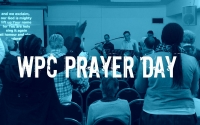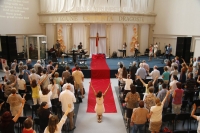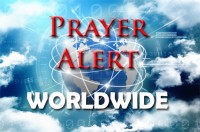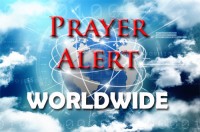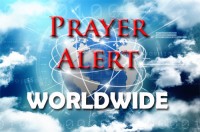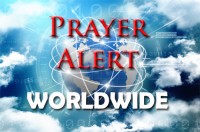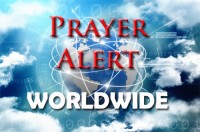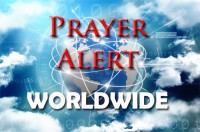British public are open and welcoming to refugees
Campaigners marched to Downing Street from Marble Arch in central London on Saturday to show solidarity with refugees all over the world. Around 90,000 people attended the event, which comes amid the worsening refugee crisis as more and more people arrive in European countries. Sini Maria Heikkila, a Christian campaigner who works for an anti-persecution charity, said that she would like to see an even more united response to this humanitarian crisis. She stressed that the German public had been particularly kind, and hoped that the march on Saturday had sent the same message from the UK public to the government and to other EU countries. Home Secretary Theresa May held emergency talks about the refugee crisis on Monday.
MPs reject assisted dying bill
During the last parliament sitting Lord Falconer introduced an assisted dying bill which peers, the media and the church all discussed. Amendments delayed its progress and parliament ended before it could be debated. Falconer suggested his proposals would have more of a chance if they were taken up by an MP in the Commons. So after the election the issue was raised again, and last Friday MPs voted on the subject of legalising assisted dying. After a passionate debate, MPs voted 330 to 118 against changing the law, in the first Commons vote on assisted dying for twenty years. Please continue to pray for effective and gracious Christian presence and influence in political debates, and for our Christians in parliament to give a wise explanation of God's truth in the public domain.
Prayer Day feedback
Our September prayer day happened on the 12th. There was a strong sense of Jesus' presence and a strong call to pray. The key themes we prayed are below so that you can join us in continuing to pray for these issues.
Pray for:
Refugees - that God will give us hearts of compassion for people in need. We live in a world of deep continuous need. Lord give us compassion for these broken traumatised people. We prayed for peace at the border crossings and camps. We pray for protection on people making hazardous journeys. We prayed for leaders making difficult far-reaching decisions under great time constraints.
Muslim converts - We heard testimonies of Muslims coming to Christ in England, captivated by the love they discovered in God's people.
Protection - Islamic militancy is growing and it would suit their schemes to build enmity between the west and our new neighbours.
New labour leader - give him wisdom, your will be done.
Peace and truth in Northern Ireland. Bless the peacemakers, bless your people.
European Trumpet call –God's blessing and release for Germany and Romania.
Supremacy of Christ in our nation and Europe - we lifted up the name of Jesus -'our hope, our rock, our fortress'.
Join us as we continue to bring these issues before the Lord.
European Trumpet Call
Romania: August 31st – September 4th 2015
The European trumpet call was held in Timisoara, Romania. It is a place with a rich spiritual heritage with a key role in bringing liberty to Romania. Protests began in Timisoara in December 1989 in response to government attempts to evict Hungarian Reformed church pastor László Tőkés. A violent crack-down by the Ceaușescu regime on the Timisoara crowds led to large-scale demonstrations in front of the dictator in Bucharest, the crowd chanting "Timisoara, Timisoara". Within days the regime toppled and Ceausescu was executed. We were hosted in this breakthrough city by the Agape church who ensured there was a 24-hour prayer and worship room where they also read through the entire Bible over the course of the conference.
The gathering was a truly international one with delegates from across Europe including a great UK representation. We were also blessed to have a team from the Pacific region who felt called to come and be with us. They have a mandate to thank Europe as their parent – the source of the gospel.
WELCOME THE KING OF KINGS
We loved our Pacific friend's holy protocols. Each meeting they would stand with their hands on their heart to welcome in the King of Kings and Lord of Lords and hand the meeting over to him. These were always holy moments, starting planning meetings and the main meetings in the presence of Jesus. We realised that welcoming Jesus as Lord, worshipping him, and praising him was a key part of the Holy Spirit's leading. Our first evening had an awesome time of praise as if the Lord had entered the room triumphantly and enthroned himself in our midst. This powerful worship continued throughout the conference led by a large team of gifted Romanians.
THE SUPREMACY OF CHRIST
We proclaimed the supremacy of Christ over Europe. We came to the cross and proclaimed His supremacy over our lives. As the conference progressed God moved among different groups, whether it be the large and enthusiastic group of under 30's, people called to the mission field, men repenting of their attitudes to women that have held women back from the promises and purposes of God and women forgiving the men.
George from Greece talked about Greek thinking. He asked us to consider who has supremacy in our heads and in our thinking. Is it Jesus or are we influenced by philosophies, values, thinking that is not Jesus- shaped? He spoke of Zeus – the Prince of Greece. Zeus gives us the word theos and is linked with the Indian word dyeus – the God of the sky and heavens. Zeus raped Europa in the form of a bull, large bull statues link with this incident. George explained that Europe is the name of someone dominated by, deceived by and abused by a demonic Prince.
Colossions 2:8 says "be careful not to allow anyone to captivate you through an empty, deceitful philosophy that is according to human traditions and the elemental spirits of the world, not according to Christ." Much of this philosophy has roots in Greek thinking. It shaped the church, it shaped political and economic thinking. It linked with the belief that God was made in man's image. Jesus confronted these beliefs directly when he went to the shrine of Pan outside Caeserea Phillipi. It was here He challenged Peter and the disciples and where Peter proclaimed Jesus's divinity, and in doing so the Supremacy of Christ over Greek thinking and worship. George spoke of God's church – the ecclesia – again at Caesarea, Jesus gave Peter and the Church the keys to the kingdom of heaven, that His will would be done on the earth and His purposes fulfilled.
At the end of this session, we declared an annulment of our relationship with Greek thinking. Jesus is Lord of our thinking, our actions, and our behaviours.
IT IS ALL ABOUT RELATIONSHIP
Having reached this point of annulment Jesus reminded us of his deep love for each of us, His people. He wants a deeper and deeper relationship with our children and families, in our individual walk, in our churches. "This is how we know what love is, that Jesus laid down his life for us, and we ought to lay down our lives for our fellow Christians." 1 John 3:16. This love leads to greater intimacy, as we grow deeper we expect more of Jesus, and submit to His will and purpose.
This led us to an understanding that God wants a new relationship with Europe. He is giving us a new name – Beulah. "No longer will they call you Deserted, or name your land Desolate. But you will be called Hephzibah, and your land Beulah; for the LORD will take delight in you, and your land will be married." This led us to make three holy promises to the Lord from Ruth, from Mary the mother of God and from the bride of Christ.
- "Wherever you go I will go, wherever you stay I will stay."
- "Let it be done to me according to your will"
- "And the spirit and the bride say – Maranatha – come Lord Jesus."
These statements were then put into a conference declaration, a commitment to a new and deeper relationship with Jesus.
SUBMISSION AND MOVING FORWARD
In the final session, the young people of Europe took the flags of the nations from around the meeting place and brought them reverentially to the centre stage where they were laid before the cross. The conference declaration was read out, signed by some of the leaders and witnessed by our friends from the Pacific. There was a sense of awe and wonder in heaven and on earth. This was followed by a time of joy, dancing, and celebration, the favour of God as things were broken in the heavenly places.
WHAT NEXT?
This week was a week when Europe dominated the news as the refuge crisis worsened and the whole of the continent was being challenged in its response to the growing crisis. A colleague from South Africa felt God was squeezing Europe to see what heart emerged. Many feel this is a time of harvest but also a time of great shaking. We are entering a new spiritual season. Trumpet Call Europe was preparing us for this. It is a time to abandon past philosophies and thinking and draw closer to Jesus, to be more and more dependent on his leading and not our wisdom. We were richly blessed by our Romanian friends, and the sense of God shaping and preparing Europe. The trumpet call is a call of mobilisation and preparation. Be ready for God to move, encourage people to pray and draw closer to Jesus and be a living testimony to his love.
Yemen: Tweets from a Medecins Sans Frontières doctor
Medecins Sans Frontières (Doctors without Borders) doctor Natalie Roberts is an emergency doctor from the UK who has been working with MSF for two years and has just returned from Yemen. The following are five of her single-sentence tweets from last week:’On the road for a long day from Amran to Saada mountains, bombing in our destination, so everyone is anxious. Car is full - 3 Yemeni colleagues, medical supplies to deliver, plus food and a generator. Stop at camp: 1k people live here in awful conditions, they left Saada due to airstrikes. Shortage of tents, food, latrines and water - we’ll try to address as many needs as we can to prevent people getting sick. Displaced people are angry, say they left Saada because they were scared they would die. Now mothers are afraid their children will die here.’ See also the Red Cross blog at https://www.icrc.org/en/where-we-work/middle-east/yemen
Myanmar: Website launch ahead of elections
A website has been launched dedicated to Wirathu, a controversial Mandalay monk, and his hardline Buddhist monk group, Ma-Ba-Tha, dedicated to the primacy of all things Buddhist in Myanmar. Buddhist nationals could powerfully impact Myanmar’s November election. The site promotes principles of Buddhism but its main content so far is the republishing of reports and opinion pieces siding with the recent Race Protection laws which criticise any other faith group. As Myanmar’s election nears, mainstream political parties such as the NLD and the ruling Union Solidarity and Development Party have been careful not to distance themselves from the outspoken monk and his followers, such is their influence over Buddhist voters. President Thein Sein warned parties and citizens to maintain harmony and act responsibly during the campaign period, which begins next week, and he specifically urged politicians to ‘take great care to not cause damage to social harmony or harm our diverse religious beliefs’.
Syria: IS issues list of rules for Christians
‘Our entire ancestral homelands have been completely taken and now they won't even allow us to sustain our religious faith in one God and His Son Jesus Christ.’ IS has issued a ‘safety contract’ for Christians living in al-Qaryatain. It comprises eleven specific commandments, including one which prohibits praying out loud to Jesus Christ under penalty of death. According to the Syrian Observatory for Human Rights, Christians in the captured town will have to pay the jizyah tax imposed on non-Muslims, in addition to the other commandments issued by the extremist group's leader, Abu Bakr al-Baghdadi.The stipulations prohibit the establishment of churches, the displaying of crosses, making Muslims hear Christian prayers or rituals of worship, the hiding of spies, offending Islamic religious beliefs, the carrying of weapons, the sale of pork or wine to Muslims, and failing to dress modestly.
Saudi Arabia: Hajj 21 to 23 September
The Hajj is an annual pilgrimage for Muslims to go to Mecca in Saudi Arabia and seek forgiveness for their sins. Young Khaled wanted to be prepared for the prayers he would pray on the Hajj. But he was also very excited to watch cartoons. His favourite was the one about Isa al-Masih (Jesus), shown on a Christian satellite television station. He skipped down the hall, calling to his mother who was also waiting for the show. She first met Isa in a dream during last year's Hajj, and longed to know Him more. Saudi Arabia is a country completely closed to Christianity. No church is open to Saudi citizens, and talking about Jesus as Saviour is illegal. Yet Jesus Christ pursues Saudis who seek Him. Christian intercessors focus their prayers during the Hajj on Muslims coming to Christ. (See also praise article 2)
Nigeria: 500 days since Chibok abductions
The president of the Church of the Brethren in Nigeria said that 176 of the girls kidnapped from Chibok by Boko Haram last year are from families in his denomination. Reverend Samuel Dali’s revelation coincided with a Global Week of Action to commemorate 500 days since their abductions. Reverend Dali said that 8,000+ members of his church had lost their lives, and 70% of church facilities in Adamawa, Yobe and Borno States had been destroyed during the Boko Haram crisis. In addition 90,000 church members have been displaced by terrorist violence. Last week the ‘Bring Back Our Girls’ campaign had a Global Week of Action commemorating the 500th day since the Chibok girls disappeared. The week included prayers, tree planting in honour of the girls, meetings with the Chief of Defence Staff and the National Human Rights Commission, and a march and candle-lit procession in Abuja.
Global: Prayer Week for refugee crisis
This week 24-7 Prayer International are inviting the global church to pray in one-hour slots, wherever they are, for the refugee crisis. The prayer week is running from midday Monday 7 until midday Monday 14 September. Readers of Prayer Alert are invited to join this initiative. Praying into such an enormous situation can feel overwhelming, but we can’t let that silence our prayers. Instead we can trust the promise of Ps 34:17 that God hears and answers prayer. According to Lev.19:34, pray that our reaction to refugees will always be love and not fear and that we will always love the one in front of us; regardless of background or status. Pray according to Ps. 11:28 for God’s rule over the nations in war and crisis, for problems to be solved with major changes in countries of origin - Syria, Iraq, Libya, Somalia, Eritrea, Afghanistan. Pray according to Mic.6:8 for the hard-pressed agencies working on the borders of land and sea. For helpful resources click the ‘more’ link.



